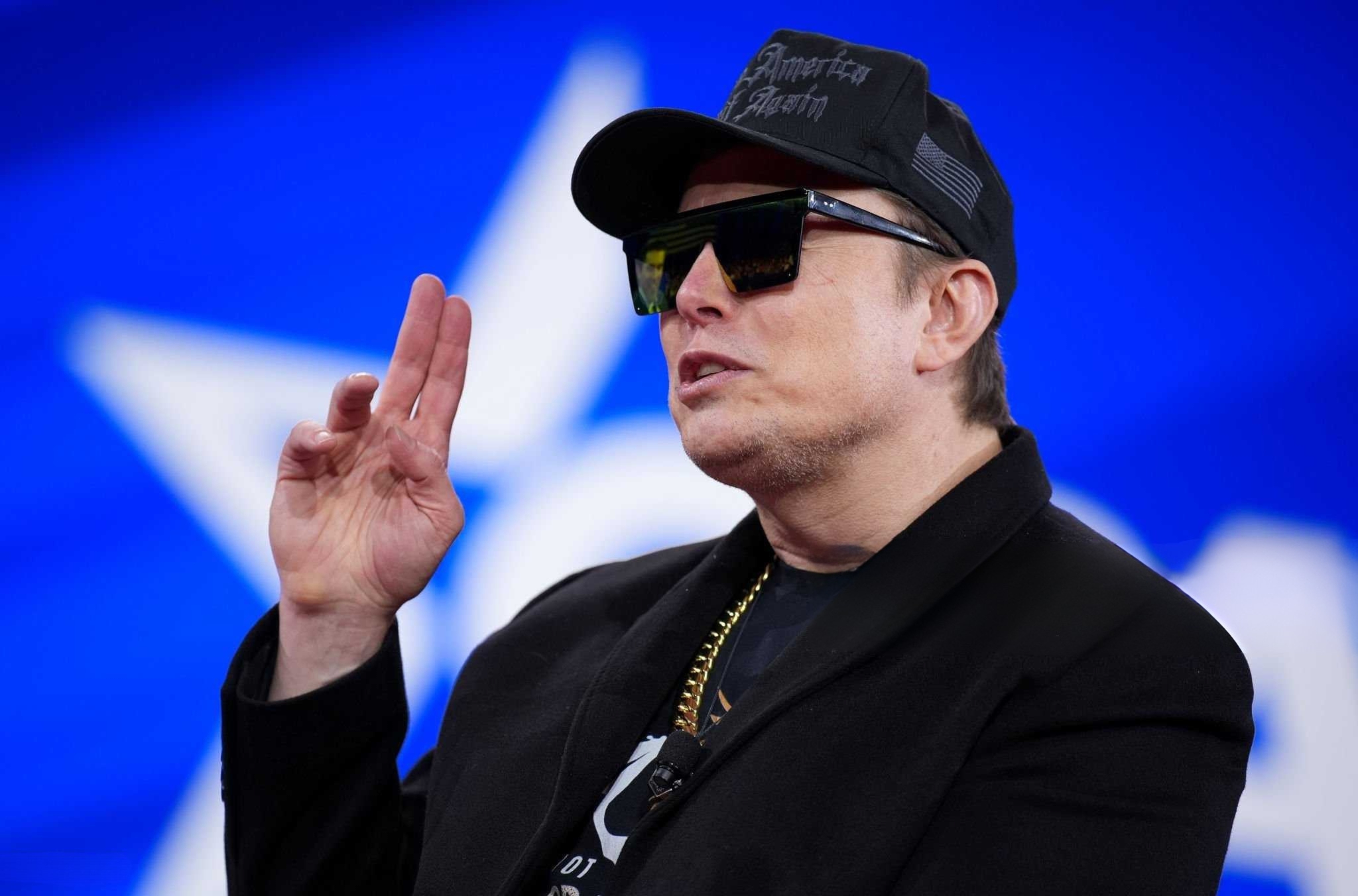Here's how Elon Musk's wildest predictions for Tesla, Optimus and robo-taxis stack up
Tesla (NASDAQ: TSLA) can be more valuable than the next five mega-cap tech companies combined, its Optimus business can generate US$10 trillion of revenue selling robots-as-a-service, and the self-driving future of its electric vehicles will see their value rise ten-fold.
All these predictions were made by Tesla founder, Elon Musk, during its January 29 earnings call at the same time as its vehicle sales slumped on the back of his forays into political activism across Europe and the US.

Does Tesla have a European image problem? And does it face headwinds from cheap Chinese competition from BYD? The answer's yes to both.
But, if Musk's right about Tesla winning the race in autonomous vehicles, energy storage, artificial intelligence, and robots-as-a-service, it won't matter much.
So, if you like making big money as an investor it's worth considering what Musk has to say, even if his erratic behaviour may be linked to an admission he regularly uses horse tranquilliser Ketamine to improve his mood.
Claim one
"There is a path where Tesla is worth more than the next top five companies combined," Musk earnings call quote Jan 29.
If this were true today, Tesla would be worth US$13.2 trillion ahead of the combined market value of Apple (NYSE: AAPL), Microsoft (NYSE: MSFT), Nvidia (NYSE: NVDA), Amazon (NYSE: AMZN), and Google-owner Alphabet (NYSE: GOOGL).
In the call Musk said it could reach that target over an unspecified timeframe as it laid the groundwork for its autonomous vehicle and autonomous humanoid robots businesses operations in 2024 and 2025.
However, the biggest challenge for the vehicle manufacturer today is plunging sales in Europe — down 45% in January — and a shrinking market share in China, where sales fell around 15% despite total electric vehicle sales in the country surging 45%, largely driven by BYD’s growth.
Given its problems with vehicle sales and likelihood the other top five will rise in value over time, we can see Tesla needs to deliver something extraordinary with robotics and autonomy to make this prediction hard to take seriously.
Claim two
"I think this will be the largest asset value increase in human history. Maybe there's something bigger but I just don't know what it is," Musk said on the company's full self-driving (FSD) ambitions on January 29.
In brief, Musk argues robo-taxis or FSD can deliver huge revenues and profits as any Tesla owner could rent out their vehicles as a driverless taxi to transport passengers or goods such as food deliveries.
Musk claims all existing Teslas could become fully autonomous robo-taxis by updating their software in the vehicles on a classic software-as-a-service model that cuts the manufacturer in with recurring fees on high profits margins.
In theory, Tesla could also make a significant one-off charge for the software update and Musk claims it could be the "largest asset value increase in human history" as the vehicles instantly become five or ten times more valuable to their owners.
As a practical example, he says a typical vehicle is only driven 10 hours across a 168 hour week, but the robo-taxis could see them used and earning fees for 55 hours a week for a five-fold uplift in value.
Profit margins are also high since there's no driver to pay and screens with adverts could also be installed in the car's passenger seats.
The robo-cabs could also be hailed from the side of the road if empty, which would save users from having to order and wait for them via a smartphone app such as Uber (NYSE: UBER).
Bears point to the fact Tesla still faces massive regulatory hurdles to getting FSD approved in the US and Europe and in convincing riders that driverless-taxis will be safe from crashes.
For what it's worth, Tesla supporter Morgan Stanley values its FSD business at US$90 per share based on it driving 7.5 million cars earning a US$1.46 a mile by 2040.
This represents just under a quarter of the investment bank's total valuation on the stock of US$410 per share. The core auto business is valued at US$77 per share assuming it can deliver 4.7 million vehicles by 2030, versus estimates of 1.6 million in 2025.
There's no doubt Tesla's can drive themselves as of today and I've personally sat in the driver's seat of a Model X as it drove itself up Sydney's William Street from Hyde Park to Kings Cross. Therefore, if we assume Tesla can negotiate the significant regulatory hurdles, this prediction may prove on the money, but over a much longer timeframe than Musk suggests.
Claim three
"Optimus has the potential to be north of US$10 trillion in revenue, like it's really bananas. With regard to Optimus, obviously, I'm making these revenue predictions that sound absolutely insane, I realise that. But they are -- I think they will prove to be accurate," said Elon Musk on its January 29 earnings call.
For those new to what Musk has also labelled "probably the best product of all time", Optimus is a general purpose artificially-intelligent robot Tesla is developing to perform common tasks that are unsafe, repetitive or boring. Depending on your point of view, these may include cooking, cleaning, lawn mowing, walking the dog, or putting the rubbish out.
In Tesla's latest earnings call, Musk said it plans to manufacture 10,000 Optimus robots in 2025, but probably wouldn't make that target.
"And my prediction, long term, is that Optimus will be overwhelmingly the value of the company," he added on January 29.
Morgan Stanley values Tesla's network services business largely made up by Optimus at $161 per share assuming it can earn US$240 average revenue per user (ARPU) by 2040.
This is notable as the Optimus business is already valued at more than double the auto business set to post a troubled 2025 in terms of growth at least.
These jaw-dropping predictions of US$10 trillion in revenue and robotic family members in every household are hard to take seriously today, although it's worth noting that tipping points in technology often arrive quicker than humans expect.
As an example, in an early 1950s survey most US households responded that they didn't want or need a television as they were expensive and the households could use the radio for home entertainment, while going to popular drive-thru movies for visual entertainment.
However, once televisions became affordable and mass produced the tipping point of their adoption across households was rapid.
Claim four
"When we look back on 2025 and the launch of unsupervised full self-driving, true real-world AI that actually works, I think we may regard it as the biggest year in Tesla history," claimed Musk on the January call.
"There is no company in the world that is as good in real world AI as Tesla. I don't even know who's in second place. Like you say, like, who's in the second place for real-world AI? I would need a very big telescope to see them," said Elon Musk on its January 29 earnings call."
Several businesses including Microsoft, Google, Meta, ChatGPT and others would challenge Musk's assumption that it's the current leader in real world AI application.
However, if his visions become reality, there's a fair argument Tesla would be the leading services provider in terms of real world utility.
Claim five
Finally, Musk complained that investors and the public aren't smart enough to value Tesla's stock properly, even though it fetched US$272.06 per share on Wednesday at 99x analysts' median forecasts for earnings per share of US$2.72 in 2025.
"And it's difficult for people to understand this because human intuition is linear as opposed to what we're seeing is exponential progress," he told the January call.
In fact, human intuition is widely considered non-linear, so the claim that the market is not valuing Tesla highly enough is dubious at best.
As an example, most humans will instinctively recognise that storm damage from 100km/h winds can be more than twice as destructive than those from 50km/h winds. As the damage-to-wind-strength ratio is non-linear.
Overall then, I'd treat Musk's claims with scepticism and remember that much of the company's potential is already priced into the share price given the auto business is under serious pressure to start 2025.
4 topics
7 stocks mentioned
.jpg)
.jpg)